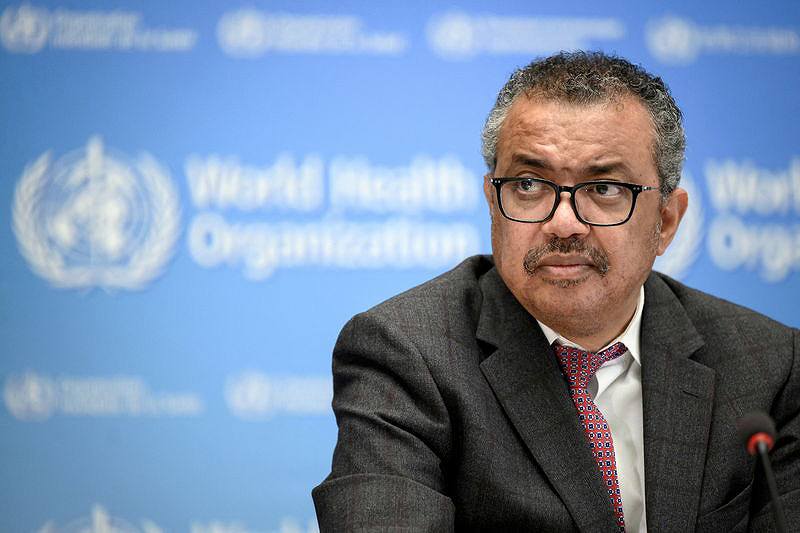WHO: Vaccine effectiveness against severe COVID drops slightly, still ‘significant protection’

World Health Organization chief Tedros Adhanom Ghebreyesus
9:54 JST, December 15, 2021
GENEVA (Reuters) — COVID-19 vaccines appear to have become slightly less effective in preventing severe disease and death but do provide “significant protection,” the World Health Organization (WHO) said on Tuesday.
The omicron variant first detected in South Africa and Hong Kong last month has now been reported by 77 countries and is probably present in most worldwide, but should not be dismissed as “mild,” WHO Director-General Tedros Adhanom Ghebreyesus said.
“Omicron is spreading at a rate we have not seen with any previous variant,” Tedros told an online briefing. “Even if omicron does cause less severe disease, the sheer number of cases could once again overwhelm unprepared health systems.”
“Evolving evidence suggests a small decline in the effectiveness of vaccines against severe disease and death, and a decline in preventing mild disease or infection,” he said without giving specifics.
Pfizer-BioNTech’s COVID-19 vaccine has been less effective in South Africa at keeping people infected with the virus out of hospital since the omicron variant emerged last month, a real-world study published on Tuesday showed.
Mike Ryan, WHO’s emergencies director, said that the vaccines are not failing and do provide significant protection against severe disease and death.
“The question is how much protection are the current vaccines that we are using, which are currently life-saving against all the variants, and to what extent do we lose any protection against severe illness and death against omicron. The data is pointing towards there being significant protection.”
Ryan said the peak of this wave of infections remains “a number of weeks” away given the very rapid spread of the omicron variant, which has outpaced the dominant global strain Delta.
Vaccine booster shots can play a role in curbing the spread of COVID-19 as long as people most in need of protection also get access to jabs, Tedros said.
“It’s a question of prioritization. The order matters. Giving boosters to groups at low risk of severe disease or death simply endangers the lives of those at high risk who are still waiting for their primary doses because of supply constraints.
“On the other hand, giving additional doses to people at high risk can save more lives than giving primary doses to those at low risk,” he said.
Tedros noted that the emergence of omicron had prompted some countries to roll out COVID-19 booster programs for their entire adult populations, even while researchers lack evidence for the efficacy of boosters against this variant.
“WHO is concerned that such programs will repeat the vaccine hoarding we saw this year, and exacerbate inequity,” he said.
Top Articles in News Services
-

Survey Shows False Election Info Perceived as True
-

Prudential Life Expected to Face Inspection over Fraud
-

Hong Kong Ex-Publisher Jimmy Lai’s Sentence Raises International Outcry as China Defends It
-

Japan’s Nikkei Stock Average Touches 58,000 as Yen, Jgbs Rally on Election Fallout (UPDATE 1)
-

Trump Names Former Federal Reserve Governor Warsh as the Next Fed Chair, Replacing Powell
JN ACCESS RANKING
-

Japan PM Takaichi’s Cabinet Resigns en Masse
-

Japan Institute to Use Domestic Commercial Optical Lattice Clock to Set Japan Standard Time
-

Israeli Ambassador to Japan Speaks about Japan’s Role in the Reconstruction of Gaza
-

Man Infected with Measles Reportedly Dined at Restaurant in Tokyo Station
-

Videos Plagiarized, Reposted with False Subtitles Claiming ‘Ryukyu Belongs to China’; Anti-China False Information Also Posted in Japan
























